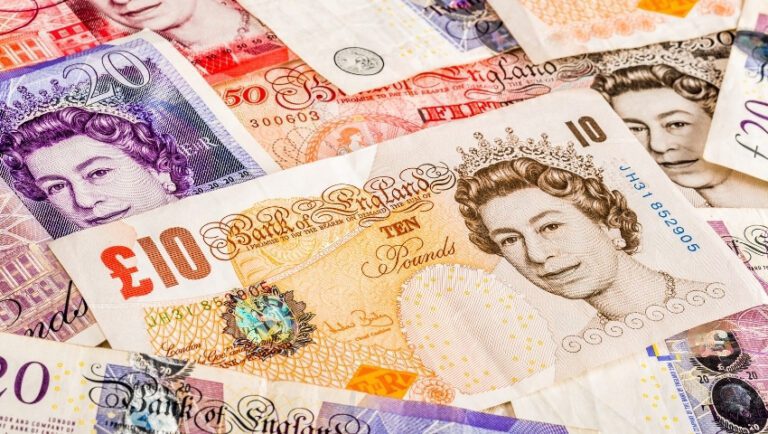The Minimum Wage in the United Kingdom 2023
The Minimum Wage in the United Kingdom – Learn about the history of the UK minimum wage, how it works today, and its impacts on workers, business, and the economy. Discover the debate around how fast it should rise and the future outlook for the UK’s minimum wage.
The idea of a legal wage floor had been debated in the UK since the late 19th century, but it took the election of a Labour government in 1997 to make it a reality. The National Minimum Wage Act received Royal Assent in July 1998 and the first minimum wage rates came into effect on 1 April 1999.

A Brief History of the Minimum Wage
The initial rate was set at £3.60 per hour for adults aged 22 and over. Lower rates applied for younger workers – £3.00 for 18-21 year olds and £3.20 for those under 18. The UK was one of the last countries in Western Europe to introduce a minimum wage.
The Low Pay Commission (LPC), an independent body made up of employer, union and academic representatives, was set up to advise the government on where to set the rates. The LPC still performs this role today.
How the Minimum Wage Works
The National Minimum Wage (NMW) sets a wage floor that applies to all eligible workers. There are currently 4 main rates:
- The National Living Wage (NLW) – for workers aged 23 and over
- 21-22 Year Old Rate
- 18-20 Year Old Rate
- 16-17 Year Old Rate
The different rates reflect the lesser experience and productivity of younger workers. There is also a separate rate for apprentices in the first year of their apprenticeship.
The rates are reviewed every April, based on recommendations made by the LPC the previous Autumn. They have increased substantially over the past 20 years. For example, the adult rate has risen from £3.60 in 1999 to £9.50 today – a 164% increase.
The NLW is effectively a higher minimum wage for workers aged 23 and over. Introduced in 2016, the government set a target for it to reach 60% of median earnings by 2020. Further targets have since raised this ambition – the NLW is set to reach 66% of median earnings by 2024.

Current Minimum Wage Rates in the UK
The minimum wage rates are reviewed annually by the Low Pay Commission and any changes come into effect on April 1st each year.
Here are the current minimum wage rates as of April 2023:
| Age Group | Hourly Rate |
|---|---|
| 23 and over (NLW) | £10.42 |
| 21-22 | £10.18 |
| 18-20 | £7.49 |
| Under 18 | £5.28 |
| Apprentice | £5.28 |
Compared to the 2022 rates, these represent significant increases of around 9-10% across all age brackets.
How Many People Are Affected?
In 2022, around 23% of jobs – over 7 million employees – across the UK were paid at or below the prevailing minimum wage rates.
With the April 2023 increases, the number benefiting will rise to over 3 million – made up of around:
- 2.6 million over 23s receiving the new £10.42 NLW rate.
- 350,000 21-22 year olds seeing a pay boost.
- 150,000 18-20 year olds earning more.
Minimum wage workers are concentrated in certain industries like retail, hospitality, cleaning, maintenance, childcare and food services.

Who Does the Minimum Wage Cover?
The minimum wage legally has to be paid to all eligible workers in the UK. The main exceptions are:
- The self-employed
- Volunteer workers
- Company directors
- Members of the armed forces
Almost all employees are covered, whether they are permanent, casual, agency, freelance or on a zero-hours contract. The employer is responsible for paying the minimum wage, not the client or agency.
Workers also must be at least of school-leaving age to qualify. For 2023, this is the last Friday in June of the school year they turn 16.
Impacts on Workers
The minimum wage has significantly increased pay for the lowest earners in the UK labour market. Around 300,000 workers benefited from the introduction of the minimum wage in 1999. The number receiving a pay rise from upratings of the NLW is now over 2 million.
However, not all minimum wage workers have gained equally. Research shows younger workers faced reduced employment opportunities from early upratings, while older workers gained. With the NLW, jobs held by younger workers have been replaced by those for over 25s.
The minimum wage is estimated to have had little impact overall on employment. But there are ongoing concerns it has encouraged employers to limit workers’ hours.
For those that have kept their jobs, the minimum wage has clearly raised pay. It has also reduced extreme low pay and poverty among households with minimum wage workers.

Impacts on Business
Many businesses opposed the introduction of the minimum wage, worried it would make them uncompetitive or force them to cut jobs. These fears have generally not materialised. Price rises, productivity gains and modest wage compression above the minimum appear to have helped offset the higher staff costs for most firms.
However, there are ongoing concerns in sectors that employ large numbers on the minimum wage – such as retail, hospitality and social care. These industries say large minimum wage increases make it hard to maintain existing staffing levels and service quality. Employers often have limited scope to raise prices in competitive markets.
Small businesses tend to worry more about minimum wage rises than large firms. They are less likely to have spare resources to absorb higher costs.
Overall, most research finds minimal impact on employment or firm profitability so far. But there are concerns this may change if the minimum wage keeps rising faster than average pay.
Should the Minimum Wage Be Raised Faster?
With the headline rate set to reach nearly £10 per hour in 2023, the UK minimum wage has entered uncharted territory. There is an active debate around whether and how quickly it should keep rising.
Campaign groups like the Living Wage Foundation say the minimum wage no longer provides a decent living standard. They argue the government should set a higher minimum wage of £10.90 per hour nationwide. However, employer groups caution against going too far above market rates.
There are also calls from trade unions and poverty charities for minimum wages to be raised faster for younger workers. Currently under-23s are only eligible for the lower NMW rates. Some view this as unfair age discrimination.
However, others argue young workers already face barriers entering work. Risks to youth employment should therefore be paramount when setting their wage rates.
The Regional Dimension
Another issue is whether the minimum wage should be adjusted to reflect costs of living that differ across the UK. The Centre for Cities proposes a London weighting to account for higher living costs in the capital. The minimum wage currently applies uniformly across all regions.
The counter-argument is that a single national rate provides consistency for employers. It also protects against the risk of ‘race to the bottom’ dynamics across different UK regions.
The Outlook for The Minimum Wage
The short-term path of the minimum wage seems clear – the Low Pay Commission will likely continue advising staged increases to meet the government’s targets. Beyond 2024, the future is more uncertain.
With the economy facing higher inflation and the risk of recession, there are growing questions around how long rapid minimum wage growth can be sustained without significant job losses.
However, there remains a broad political consensus around the merits of the minimum wage and preventing the lowest pay falling behind growth in average earnings. This general support seems likely to continue driving increases in some form, though the scale and timing remain debated.







